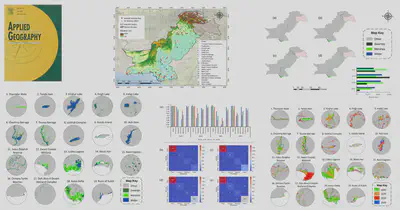Leveraging machine learning and remote sensing to monitor long-term spatial-temporal wetland changes: Towards a national RAMSAR inventory in Pakistan
Abstract
In Pakistan, wetlands are of primary focus as they withstand the effects of floods, recharge groundwater, and provide several services in the context of economic, cultural, and climate mitigation aspects. However, the lack of field data and huge monitoring costs hinder their sustainable management in Pakistan. In connection with this, the current study leverages Google Earth Engine (GEE), earth observation data, and machine learning-based Random Forest (RF) algorithm to evaluate spatial-temporal heterogeneities in wetlands in Pakistan between 1990 and 2020. Additionally, the first high-resolution long-term inventory of wetlands in Pakistan is presented to provide a baseline. Our results ascertain an increase in wetlands areas over the last 30 years. The swamps’ area increased from 1391.19 km2 in 1990 to 8510.43 km2 in 2020 (2.62% annual change rate). Similarly, the marshes area increased between 1990 and 2020 with a ∼1.04% annual change rate. Conversely, the water area decreased from 8371.97 km2 in 1990 to 7818.34 km2 in 2020. The increase in wetlands could be associated with good conservation and planting practices in Pakistan. While these results provide important insights to implement conservation practices in the context of wetland sustainability, the resultant data is essential to the national wetlands inventory database for future evaluations.
